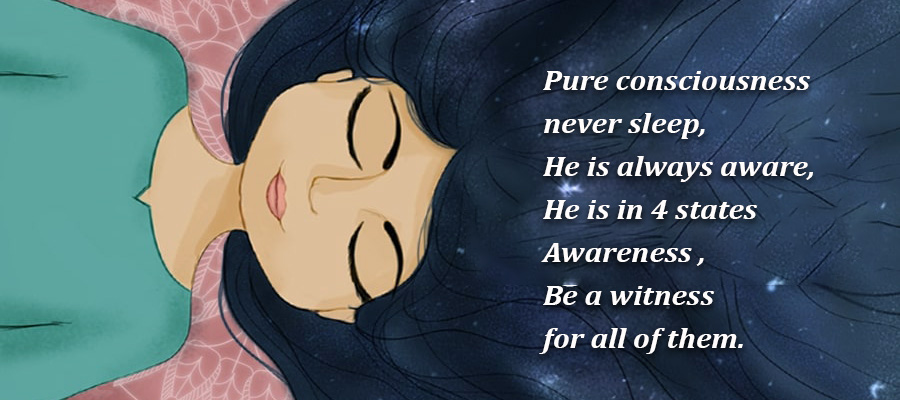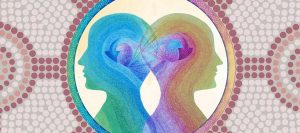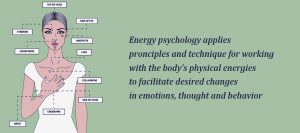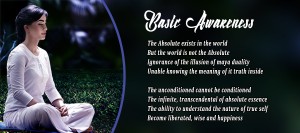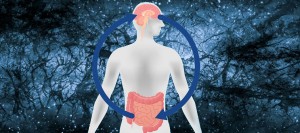- 1Mind and Prana
- 1.1Healing
- 1.2Sleep and the Home
- 2The Great Cosmic Dream
- 3Every Day as the Creation of the Entire Universe
- 4THE POWER OF CONSCIOUSNESS
- 5Three Worlds and Five Bodies
- 6SLEEP AS A SPIRITUAL DISCIPLINE
- 7Ayurvedic View of Dreams
- 8SLEEP PROBLEMS
- 8.1Why do we sleep?
- 8.2How does sleep affect memory?
- 8.3What has changed in sleep research?
- 8.4What do you measure to test brain health?
- 9NIDRA YOGA — MINDFUL SLEEP
- 10YOGA AT EACH LEVEL OF CONSCIOUSNESS
- 10.1Yoga in the Waking State
- 10.2Yoga in Deep Sleep
- 10.3Yoga in the Fourth State
- 11Natural Patterns of Sleep
- 12Dreams and the Astral World
- 13Science and the Mind
SLEEP PROBLEMS
Ayurveda also classifies types of insomnia as doshic and offers holistic ways of managing the disorder through lifestyle changes, and practices such as abhyanga (oil massage) and/or applying oil to the soles of the feet.
Rudolph Tanzi, the Harvard-educated epigeneticist best known for discovering a link between insomnia and Alzheimer’s, explains in Super Genes, which he co-authored with Deepak Chopra:
“In the tradition of ayurveda, insomnia is rooted in an imbalance of vata, one of the three doshas or basic physiological forces. Vata, which is linked to biological motion, causes all manner of restless, irregular behavior. When it is out of balance, people find it hard to keep to a routine in diet, digestion, sleep and work. Mood swings and anxiety are related to vata. Without asking anyone to adopt an ayurvedic perspective, we think it’s helpful to see that vata links mind and body in a very realistic way. Appetite, mood and energy levels are all thrown out of balance when sleep—a natural remedy for vata imbalance—is deprived.”
Dr. Tanzi recommends that in order to take
“the benefits of the vata-sleep connection, you must first recommit yourself to a good night’s sleep. Letting a full 8 hours turn into 5 or 6 is a slippery slope.”
“If you have a problem with insomnia, either having trouble falling asleep or waking up during the night, don’t turn to pills — any kind of sleep aid is not equivalent to establishing a natural sleep rhythm.”
The vata-sleep connection links most of the options to conventional insomnia advice in Western medicine. Dr. Tazi confirmed.
“Just a few things that need further explanation. First of all, the overlooked things that keep a lot of people awake are too much light in the bedroom, too much noise, and minor aches and pains that go unnoticed until you start sleeping. If you have the type of sleeplessness that is typified by waking up in the middle of the night or too early, consider these three factors as first-line treatment.”
Blue light emanating from computer screens, phone screens and LED lights after the sun has gone down has also been shown to disrupt sleep. It does this by suppressing melatonin, a hormone that induces sleep and regulates the circadian rhythm. This phenomenon has been dubbed the “Blue Light Problem” and has substantial scientific evidence to support it. Consider visiting bluelightatnight.com to begin your own research.
Tanzi writes of sleep rhythms, “In sleep research terminology there are “larks” (early risers) and “owls” (late risers) whose sleep habits are set for life. How such habits get set isn’t known, and this may be a fruitful area for epigenetics to explore, since it’s through epigenetic marks that genetic predisposition intersects with experience. Disrupting someone’s natural sleep rhythm is known to have widespread implications for the body. Workers on the night shift, for example, never fully adapt to their unnatural schedule of waking and sleeping. About 8.6 million Americans work the night shift or rotate shifts, and they are at higher risk for cardiovascular disease, diabetes and obesity. Since the same conditions are associated with inflammation, there could be a strong link there.”
The tendency to lose sleep as we age has a vata link, since according to ayurveda, this dosha increases with age. It’s prudent not to take sleep for granted, even if you have always enjoyed good, sound sleep. Adopt healthy habits early and you will prevent future problems. Lack of sleep has been associated with triggering Alzheimer’s. Lack of sleep is also associated with high blood pressure, which tends to increase by the decade as we age.
Modern science has not yet explained exactly why humans need sleep. But as it gains an understanding of the importance of sleep and sleep rhythms, it resonates more closely with the holistic approach of ayurveda. It is clear that we must make the necessary lifestyle adjustments to ensure adequate sleep, preferably at regular times. The Hindu view might ultimately propose that sleep and dreams are necessary to the biology and psychology of the individual, and that dreams can be of many types and reflect the energies of many different states of consciousness.
Western sciences have barely touched on the esoteric treasure trove of Hindu understanding of the inner world and dream life. As we evolve, mastery of sleep becomes a means of spiritual evolution and a channel of communication with our own devas and superconsciousness.
The Mandukya Upanishad, however, reminds contemplative Hindus that always and forever, whether awake, dreaming or deep asleep, we are at home in Brahman.
Sleep Stages – In Western Terms & Ayurveda
- 5-10 minutes. Theta waves. Gradual cessation of prana vata.
- 10-25 minutes. Rapid, rhythmic brain waves. Temperature drops, breathing, and heart rate slow down. Cessation of sadhaka pitta, the fire of motivation.
- 20-30 minutes. Delta waves. Slow brain activity. Deep sleep induced by tarpaka kapha, a brain secretion associated with bliss and total contentment.
- 20-30 minutes. Delta waves. Governed by tarpaka kapha. However, prana may become active, causing bedwetting or sleepwalking.
- Initial occurrence can be very short but each cycle becomes longer, lasting up to an hour as sleep progresses Rapid eye movement (REM) stage of sleep, which indicates activation of prana. This is the dream stage. Respiration becomes faster and repressed emotions activate, causing some to have dreams of sex in this stage.
Our Sleep Is Disturbed by:
- Anxiety, depression
- Overexertion
- Staying up late
- Cold temperature
- Irregular eating
- Poor nutrition
- Emotional upsets
- Physical aches & pains
- Excitement, agitation
- Stress and worry
- Grief
- Harsh surroundings
- Excessive noise
- Excessive light in room
Why do we sleep?
Because we’re tired! No, it’s a good question, and not completely settled yet. There’s evidence for at least two reasons, cleansing and memory. It was recently discovered that while you are awake and your brain is working hard, thinking about things, the cells in your brain, the neurons, actually swell. They get larger. Then, when you go to sleep (or if you get anesthesia for a surgery), the cells shrink a little bit, creating space between them.
The cerebrospinal fluid can then pass easily through your brain tissue, washing out some of the waste products that accumulate during your waking hours. That small increase in space causes a dramatic increase in the rate at which the brain can flush out waste products. The deepest stage of sleep, the so-called non-REM Stage Three, or slow wave sleep, seems to be most helpful for that.
How does sleep affect memory?
Sleep also seems important in helping with memory consolidation. Different rhythms arise during different parts of sleep. During a light to medium-deep (“non-REM Stage Two”) sleep, the brain produces slow waves punctuated by little rhythms, called the spindle oscillation, that turn on and off, on and off.
We think these help move short-term memories into the long-term memory part of the brain. People whose slow waves are disrupted, for example, with anesthesia or certain sleeping medicines, have performed worse on cognitive tests in the morning. They’re not as refreshed as they would have been, and they don’t remember things as well as if they had slept normally.
So sleep is believed to be very important for memory consolidation— transferring short-term memories into long-term memory, and rehearsing things you did, maybe skills you learned while you were awake. But though we have evidence for these things, they’re not fully proven yet.
What has changed in sleep research?
People are starting to recognize that healthy sleep is just as important as exercise or eating well, maybe more important. I am trying to help hospitalized patients make it through with their brain health intact as much as possible. When you have a kidney problem or a heart problem, it accelerates what happens in life.
People might get confused while they’re in the hospital, even when they came in with no brain problem. In the past people paid no attention to the brain; they just assumed patients got completely better after the primary medical problem was corrected. But during the last decade we’ve found that if you don’t take good care of the brain, it does not completely recover from this confusion.
Some people have impairments as a result of their critical illness that last for a year or more. We are realizing hospitals should routinely monitor the brain as well as the heart and lungs, in order to keep people’s brains from getting sick. One of the important factors turns out to be sleep.
A typical hospital stay still involves beeping noises, lights on at all hours, and people waking you up all the time. We are barely starting to see that’s a problem and address these issues so we can provide better care for the sick.
What do you measure to test brain health?
The brief answer is that we measure more than five hundred little features of brain activity. None of them by itself is good enough to make overall predictions; your brain activity is not simple. One of the easier things to explain is the power of the signal—the amplitude of the little electrical oscillations in the signal. A very flat electrical signal would have zero power or very little power. Roughly speaking, a healthy signal oscillates a lot and is highly variable.
Each waking or sleeping state is characterised by certain healthy rhythms. For example, when you’re awake, if you close your eyes and just stay calm, there should be, near the back of your head, a beautiful sine wave signal. As you get older, or if you get sick, the amplitude of that alpha rhythm will get smaller, very low amplitude peak to peak. Also, the rhythm at which it oscillates will go from say ten cycles per second down to a lower frequency. Maybe seven cycles per second.
Similarly, one of the Stage Two patterns is called the spindle oscillation. These are little rhythms that turn on for a couple of seconds and then turn off, and on and off. These are involved in memory consolidation. They, too, will tend to get smaller and lower in frequency with disease or age. The slow waves provide a third example; their amplitude will get smaller. It’s easy to imagine how these are related to the important functions of sleep we spoke of earlier.

